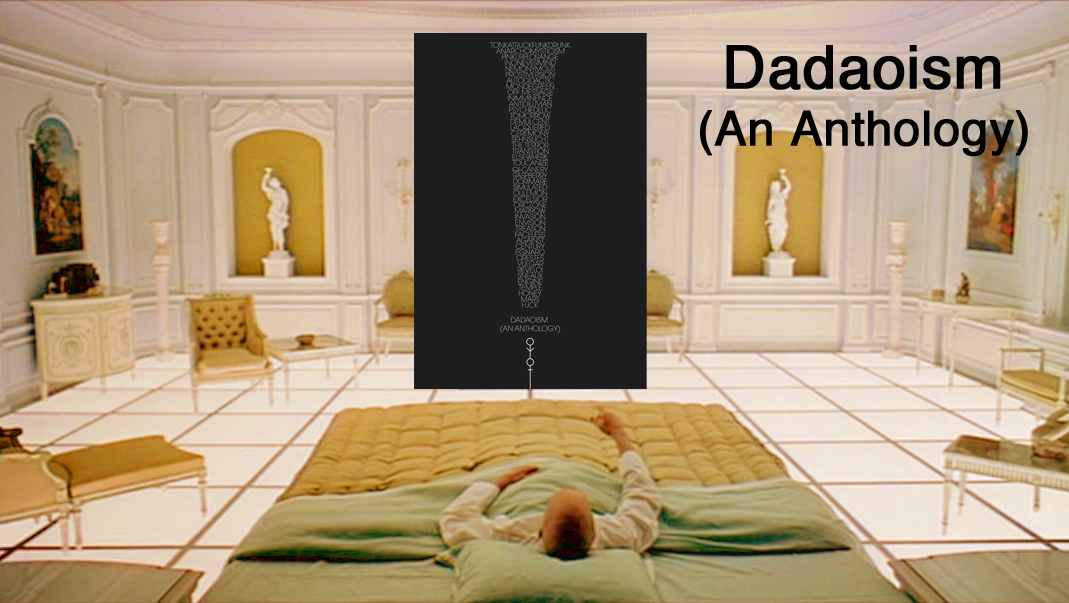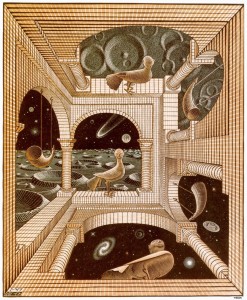CHÔMU’S PURE LIQUID LSD
Julie Sokolow on the drug-addled origins of “The Lobster Kaleidoscope” and Chômu Press’ Dadaoism anthology.

The Cover of Chômu Press’ Dadaoism anthology resembles a certain, familiar monolith. Still from Stanley Kubrick’s 2001: A Space Odyssey (1968).
A year ago, I dispatched my idiosyncrasies overseas. I had been reading the work of a UK-based publishing house called Chômu Press and felt a kinship with their unabashed promise: “If you are tired of tepid, humanistic realism on the one hand, and the narrow fixations of genre on the other, Chômu Press may be what you have been waiting for.” There was something devilishly discourteous about it, but I was intrigued by the Steppenwolf-style invitation to Chomu’s own Magic Theatre. Now, seven years since I originally penned the drug-addled artifact that is “The Lobster Kaleidoscope”, I find it “trippy” to experience it anew within the context of Chômu’s impressive Dadaoism anthology.

M.C. Escher’s “Another World”
Dos Dazzling Deets re Dadaoism (An Anthology):
1) Metaphysical Portals: As a devotee of Borges, Kafka, and Beckett, I get kicks out of masterful meta-ness, psychological terror, and gallows humor, all of which Dadaoism’s opening piece, “Portrait of a Chair”, possesses in levels of toxicity. In Reggie Oliver’s story, a retired antiques dealer, keenly aware of his mortality, attends an auction where he purchases a captivatingly simple portrait of a chair. The portrait is not just some symmetrical schlock to mount over a mantel, but rather, a metaphysical portal to a dimension in which inanimate objects are paradoxically conscious, and the narrator, having undergone a paralyzing transformation, must fight through telepathic intellect alone to survive. READ MORE >
